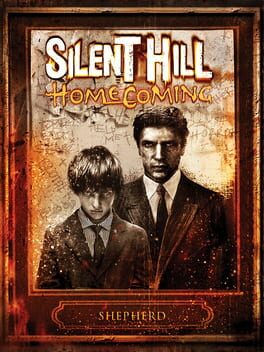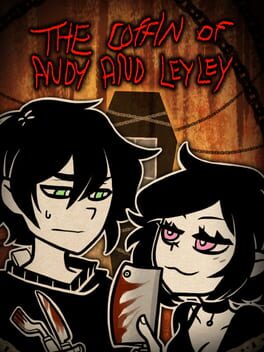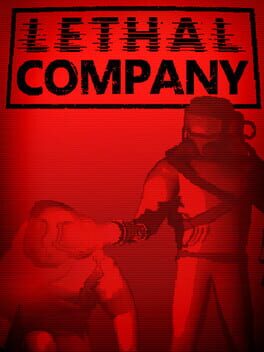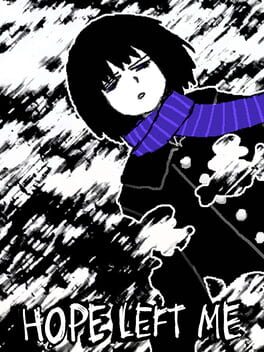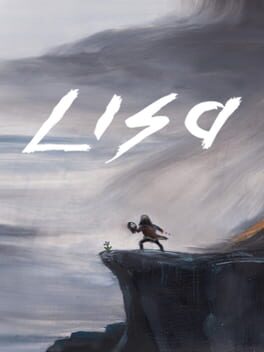Snel
1998
badly wish I had the wherewithal to power my way through the early/mid-game slump becasue past the rigorous difficulty scaling is a genuinely fascinating world full of character and curiosity when you aren't interacting with it through one-sided combat. Surely there are more interesting ways of crafting an oppressive game atmosphere without feeling like a clockwork ball kick (which this game achieves, however fleetingly) than increasing enemy rat health by fivefold, or getting instantly swiss-cheesed by a chance enclave encounter. Can't with it right now, but I'll probably pick it back up in the future.
i can think of no other series where the source of horror is derived more exclusively from what is implied rather than what is actively shown or obscured. From the inscrutability of another's intentions, paired with our own readiness to read danger into their strange gesticulations and stilted cadence. The presence of almost pitifully freakish "monsters" writhing beyond playable boundaries in what could just as easily be orgasm as agony. The distressing gurgles, expulsions, and phallic exaggerations of beings driven by unadulterated libidinal energy. Silent Hill's insight: Hell is not just other people; it is caused by other people. It comes easier to see, then, for the miracle that it is, how consistently the journey through hell leads to the foundation of better things. To the possibilities of life, love, truth, and even beauty. Every Silent Hill game thus has aligned you with someone deeply personal to yourself worth fighting for: a missing daughter, a dead wife, an avenged father. Silent Hill 4 is a game about saving total strangers. The titular room, traveled between by you alone via umbilical-like tubeways (room=womb), beginning as your greatest healer and sole sanctuary, contrary the otherworld, turned worst oppressor (not even mentioning Sullivan's mother complex) is as mechanistically intuitive the series's Freudian metaphors come. That Townshend is the least impressionable of all previous protagonists is no mistake because he is a symbol of the monad, which proves false not because it is wrong but because it is impossible. Because even our isolation becomes haunted by others. Because every problem is interpersonal. Every experience interexperiential. And so even the girl next door becomes a reason to live.
2023
2016
2022
2011
2014
the difference between good cynicism (A Clockwork Orange, No Longer Human) and juvenile cynicism is often that the former cannot be easily read as either didactically moral or immoral—the impossibility of this clarity itself being the source of cynicism—where the latter begets only nastiness and caricature.
The Lisa trilogy tells the story of three descendent patrilineal traumas, with the back half of games taking place in an entirely male-populated wasteland following the mysterious destruction of all women. Porn magazines become the new currency, and every surviving male falls somewhere along the spectrum between homicidal rapist and comparatively harmless gooner (i.e., no way any man would voluntarily identify themselves with). This is fine so long as the game occupies only the realm of levity: a comedic version of Children of Men. But trouble comes when this tendency towards totalizing negative psychology does not give way to any human truths.
That violence is cyclical and murdering people bad is true, but boring because it is a truism.
I struggle to think of Lisa as categorically cynical so much as outright misanthropic. It spells an incontrovertibly bummer text, which only seems all the more of a total downer taken as the middle child of a trilogy of games which are all essentially doomposts. The First teaching you that there is no escape from trauma, The Painful that nothing can amend it, and The Joyful that it'll persist even after you're gone. We witness this cross-generational story of suffering. This deterministic cycle of pain. All of this failed human potential for... well, what? Are these hard to swallow truths or an unhelpful and uninspired use of captial "T" trauma as a plot mechanism? The game really wants you to believe the former.
Jorgenson supposedly made Lisa with the mantra of making no statement. To depict things of no agenda whatsoever and as impartially as the programming that allows the game to run properly on computers. This, among anything that acutally happens throughout Lisa, is perhaps what is saddest.
The Lisa trilogy tells the story of three descendent patrilineal traumas, with the back half of games taking place in an entirely male-populated wasteland following the mysterious destruction of all women. Porn magazines become the new currency, and every surviving male falls somewhere along the spectrum between homicidal rapist and comparatively harmless gooner (i.e., no way any man would voluntarily identify themselves with). This is fine so long as the game occupies only the realm of levity: a comedic version of Children of Men. But trouble comes when this tendency towards totalizing negative psychology does not give way to any human truths.
That violence is cyclical and murdering people bad is true, but boring because it is a truism.
I struggle to think of Lisa as categorically cynical so much as outright misanthropic. It spells an incontrovertibly bummer text, which only seems all the more of a total downer taken as the middle child of a trilogy of games which are all essentially doomposts. The First teaching you that there is no escape from trauma, The Painful that nothing can amend it, and The Joyful that it'll persist even after you're gone. We witness this cross-generational story of suffering. This deterministic cycle of pain. All of this failed human potential for... well, what? Are these hard to swallow truths or an unhelpful and uninspired use of captial "T" trauma as a plot mechanism? The game really wants you to believe the former.
Jorgenson supposedly made Lisa with the mantra of making no statement. To depict things of no agenda whatsoever and as impartially as the programming that allows the game to run properly on computers. This, among anything that acutally happens throughout Lisa, is perhaps what is saddest.


